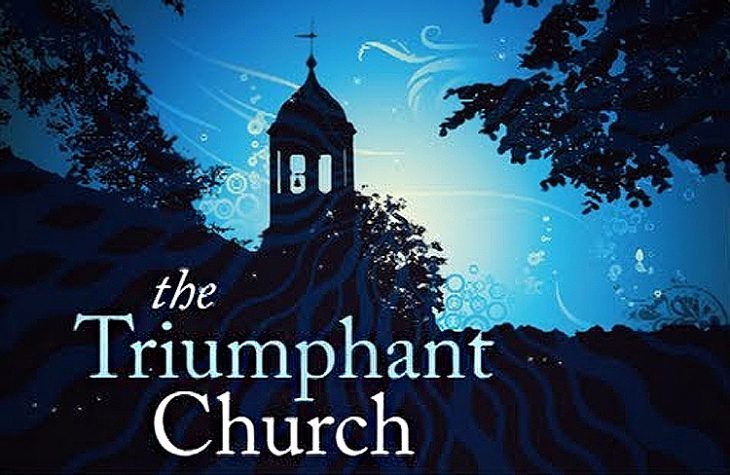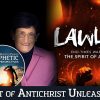There is much talk going around these days about how unified, triumphant and glorious the Church will be in the end times right before the return of Jesus. This pollyanna image of the Church is certainly attractive, but it only partially corresponds with what the Bible prophesies.
But before we take a look at end time prophecies regarding the Church, let’s take a look at the Church in Bible prophecy in the past and present.
Old Testament Prophecies
Some theologians take the position that the Church is not mentioned in the Hebrew Scriptures. This is both right and wrong. It is correct that there is no specific mention of the Church. But, on the other hand, the Church is certainly intimated in a number of prophecies in the Old Testament.
The Apostle Paul referred to five of these prophetic passages in Romans 15 where he justified his preaching of the Gospel to Gentiles. He specifically quoted:
- 2 Samuel 22:50 and Psalm 18:49 — both of which speak of a time when God will be praised among the Gentiles (Romans 15:9).
- Deuteronomy 32:43 — which says a time will come when Gentiles will rejoice with the Jews (Romans 15: 10).
- Psalm 117:1 — which says there will be a day when the Gentiles will praise the God of the Jews (Romans 15:11).
- Isaiah 11:10 — which says when the Messiah comes (“the root of Jesse”), Gentiles will find hope in Him (Romans 15:12).
- Isaiah 52:15 — which says that one day the Gentiles will come to know and understand the Messiah (Romans 15: 21).
And these are only a few of the Old Testament prophecies about the future inclusion of Gentiles into God’s Plan for the Ages. Isaiah 42:1 says the Messiah will bring “justice to the nations [Gentiles]” A few verses later, Isaiah proclaims that the Messiah will be “a light to the nations [Gentiles]” (Isaiah 42:6). Isaiah repeats this prophecy in Chapter 49 where he quotes God as saying that He will make the Messiah “a light to the nations [Gentiles] so that My salvation may reach to the end of the earth” (Isaiah 49:6b).
One of my favorite prophetic references to the future inclusion of Gentiles in God’s kingdom is found in Isaiah 9:1-2 where the prophet says that one day God will make glorious the “Galilee of the Gentiles.” Specifically, he states that “the people who walk in darkness will see a great light [the Messiah].” Another is found in Isaiah 54:1 where the prophet declares that a time will come when “the sons of the desolate one [the Gentiles] will be more numerous than the sons of the married woman [Israel].”
The cornerstone prophecy about the inclusion of Gentiles in God’s plan of salvation is to be found in the Abrahamic Covenant, which is first enumerated in Genesis 12:1-3. In this passage, Abraham was told by God that through his descendants “all the families of the earth shall be blessed.” That promise certainly included the Gentiles.
Fulfillment of the Prophecies
Although it was always possible for Gentiles to be saved during Old Testament times by responding to the Creator in faith (Joel 2:32 and Romans 2:14-15), their specific inclusion in God’s Plan for the Ages did not occur until the Day of Pentecost in about 30 AD. This was when the Church was established. The Apostle Peter preached the first Gospel sermon (Acts 2:14-36), and three thousand souls responded.
It is true that all of these were Jews. It is true that the Church began with Jewish people responding to a Jewish message about a Jewish Messiah. And thus, the Church began as what appeared to be a Jewish sect. But within a few years of its establishment, the Church was opened up to Gentiles in fulfillment of Old Testament prophecies.
This began when the Apostle Peter was given a vision by God that made it clear that Gentiles were to be included in the Church (Acts 10:9-15). That same day, Peter was summoned to Caesarea Maritime to preach to a Roman soldier named Cornelius (Acts 10:19-22). When Peter shared the good news of salvation with this soldier, he and all his household received Jesus as Lord and Savior. The Holy Spirit fell on them, and they were baptized in the name of Jesus (Acts 10:34-48).
This turning-point event caused a crisis in the Church. Some questioned whether or not pagan Gentiles should be included. Others argued that if they were to be included, they must be required to submit to circumcision and the laws of the Torah.
These controversies resulted in a conference in Jerusalem where it was decided that it was God’s will to include Gentiles (Acts 15:6-29). It was also determined that Gentiles should not be compelled to become practitioners of Jewish laws. In the process, Peter quoted a prophecy from the Hebrew Scriptures that envisioned a day when “the rest of Mankind would seek the Lord,” including “all the Gentiles” (Acts 15:14-18 in reference to Amos 9:11-12).
Near the end of Paul’s second missionary journey, after his arrival in Corinth, he became upset with the persistent resistance of the Jews to the Gospel. This frustration prompted him to declare, “From now on, I shall go to the Gentiles” (Acts 18:6). And over the next few years, the whole complexion of the Church changed from a Jewish sect to a Gentile congregation.
In the second part of this study of the Church in Bible prophecy, we’ll explore the messages of the Seven Churches of Revelation.








Unfortunately we’re stuck with the “church” moniker a Greek derivative. In fact scripture talks of the community of believers or congregation, which include both gentiles and Jews, church and synagogue as His. Translators tend to use synagogue when a negative connotation is implied but in fact we are all one and the same body, whether Jew, gentile, free, slave, male, female; in Christ.
Oscar, use of the designation “Church” separates Christians from other religions. Colossians 3:11’s use of “where there is neither Greek nor Jew, circumcised nor uncircumcised, barbarian, Scythian, slave nor free, but Christ is all and in all” designates Christians may have originated from all these different backgrounds, but each person has accepted Jesus Christ as their Savior.
In the third paragraph after Fulfillment of the Prophesies you state that Peter first preached to the Gentiles, then you changed to Paul. Probably understood, but needs correction.
Why a correction? It’s a biblically correct timeline.
My thoughts are: see the time growing short to be saved. The world itself is in a delusional state, eating, drinking, marrying, things going on as usual, then all of a sudden a catastrophic occurrence, this is the way Jesus describes the sudden Rapture of the church. Yes, there are those in the net of Christians who may not be saved. We need to prepare and make sure we have accepted Christ, repented, are honorable, honest, and worthy in every way, as the world grows darker as it did in the Days of Noah.
In my opinion “church” is the most incorrectly used word in the Bible. Ecclesia was never intended to be translated as church. Jesus more than likely did not use the work “ecclesia” but used the word “adah”. Jesus was building a Kingdom that would include people as an individual or as groups. Church is a building and should only be used as that. Jesus was teaching and demonstrating how and who would be in these groups and how they would function. Some were called the “Way” and some were called believers, “ma’aminim”.
The correct translation is used in Acts 19:32,39,41 so why the others, over 100 times would they use the word “ecclesia.” http://www.aggressivechristianity.net/articles/ecclesia.htm has a great article on this subject.
Yes, There is growing apostasy everywhere, but the true church will overcome all of it, including false doctrine.
These words are so relevant. I solemnly charge you in the presence of God and of Jesus Christ, who is to judge the living and the dead, and by His appearing and His kingdom: preach the word; be ready in season and out of season; reprove, rebuke, exhort, with great patience and instruction. For the time will come when they will not endure sound doctrine; but wanting to have their ears tickled, they will accumulate for themselves teachers in accordance to their own desires and will turn away their ears from the truth and will turn aside to myths, 2 Timothy 4:4-1.
We are seeing false doctrine every day, know God’s word so you can know the truth. Read 2 Timothy 4:1-4. For the time will come when they will not endure sound doctrine; but wanting to have their ears tickled, the will accumulate for themselves teachers in accordance to their own desires, and will turn away their ears from the truth and turn aside to myths.